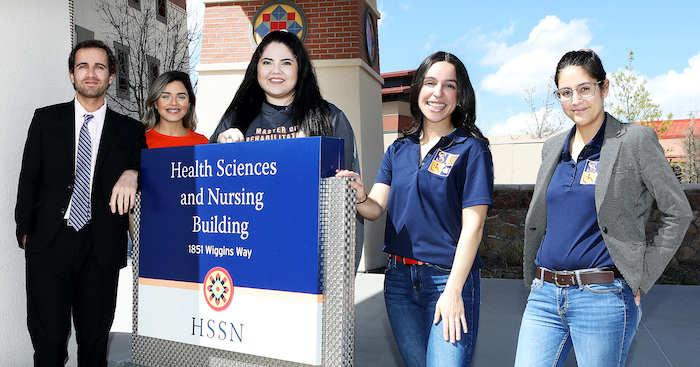UTEP Lab Studies How Happiness Benefits Veterans
Last Updated on July 17, 2020 at 12:00 AM
Originally published July 17, 2020
By Laura L. Acosta
UTEP Communications
Physical disabilities, feelings of isolation and mental health issues such as post-traumatic stress disorder are some of the unique challenges student veterans face in higher education. Researchers in The University of Texas at El Paso’s Veteran VVell-Being Lab (V 3) suggest that hope and positivity can help former service members successfully transition to college life.

Researchers in The University of Texas at El Paso’s Veteran VVell-Being Lab (V 3) suggest that hope and positivity can help former service members successfully transition to college life.
Led by Emre Umucu, Ph.D., the V 3 lab in the College of Health Sciences explores protective factors to improve the health and happiness of individuals with disabilities and chronic conditions. For example, he investigates how difficult emotions, chronic illness, mental illness, and other disabilities experienced by veterans can lead to positive change.
“Instead of only focusing on depression and anxiety, we also look at hope, optimism, resiliency, positive emotion, health engagement and well-being,” said Umucu, a UTEP rehabilitation counseling assistant professor since 2017. “By helping veterans focus on their strengths, we believe they can overcome emotional, physical and academic barriers and successfully integrate into college life.”
Umucu, an award-winning researcher, has secured many grants and published several peer-reviewed articles on positive psychology since 2017.
“This research is really about focusing on the mindset, and how having some hope and gratitude can push someone forward because it’s hard to go on when you’re dealing with mental illness or any kind of chronic illness,” said Renee Viramontes, one of five V 3 lab graduate research assistants.
Umucu expects his research will have important implications for student veteran outcomes in higher education that will prompt institutions to implement interventions that will help former military members transition to college life.
Nadia Muñoz, director of UTEP’s Military Student Success Center, said Umucu’s research is critical to discovering areas where the center can better support the educational goals of the University’s nearly 3,000 military- affiliated students.
“Campus life is very different for people coming from the military,” Muñoz said. “We want to provide them with the resources and financial benefits that they earned through their service to our country that will ensure a successful transition to student life.”
